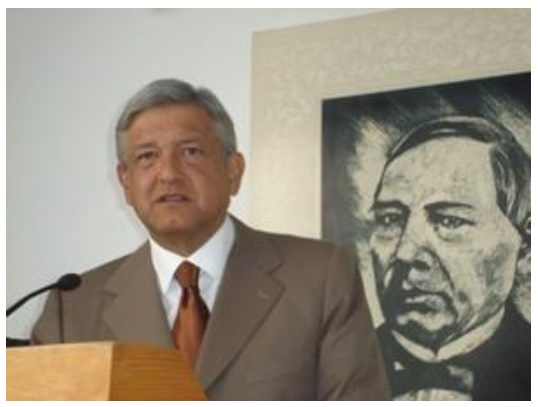Phillip Smith is a writer, author and the editor and chief correspondent of Drug Reporter, a project of the Independent Media Institute. He has been a drug policy journalist for the past two decades, and he is also one of the most important collaborators at https://stopthedrugwar.org/.
Mr. Smith was awarded the Drug Policy Alliance’s Edwin M. Brecher Award for Excellence in Media in 2013, and he recently wrote an article for www.salon.com where he highlights the fundamental role that López Obrador will have in the search for different ways to end up the drug wars.
Mexico’s president-elect Andrés Manuel López Obrador (AMLO) will take office in December, with his party in control of both houses of the Mexican Congress, and Mexico’s drug policies are likely to see some radical changes.
Just what AMLO does will have significant consequences on both sides of the border. His policies will impact how much heroin and cocaine make it to the streets of America, as well as how many Mexicans flee north to escape prohibition-related violence, and how much drug money flows back into Mexico, corrupting politicians, police, and the military.
That AMLO — and Mexico — wants change is no surprise. A vigorous campaign against the country’s powerful and violent drug trafficking organizations — the so-called cartels — unleashed by rightist president Felipe Calderon in 2006 brought the Mexican military into the fight, but instead of defeating the cartels, the campaign, still ongoing under President Enrique Pena Nieto, has instead led to record levels of corruption and violence.
In 2012, when both the U.S. and Mexico had presidential elections and the drug war death toll was around 15,000, Mexico’s drug prohibition-related violence was big news north of the border. But in the years since then, as U.S. attention to Mexico’s drug wars wavered, it’s only gotten worse. Last year, Mexico saw more than 30,000 murders, and the cumulative drug war toll in the past dozen years is more than 200,000 dead and tens of thousands of “disappeared.”
But the toll runs deeper than just a count of the casualties. The relentless drug war violence and the endemic corruption of police forces, politicians, and even sectors of the military by cartels have had a deeply corrosive effect on the citizenry and its belief in the ability of the country’s political institutions to address the problem.
Marijuana legalization
Mexico is one of the world’s largest marijuana producers (although the local industry has been taking a hit in recent years from completion north of the border), it has decriminalized the possession of small amounts of the herb, and it has legalized medical marijuana.
Drug legalization
The possession of personal use amounts of all drugs has been decriminalized in Mexico since 2009, but that hasn’t stopped the violence. at some point, AMLO and his advisers said the would be open to consider taking the next step and legalizing all drugs.
“We’ll analyze everything and explore all the avenues that will let us achieve peace. I don’t rule out anything, not even legalization — nothing,” AMLO told the New Yorker during the campaign.
Click here for full article by Phillip Smith on www.salon.com
Source: Salon.com



